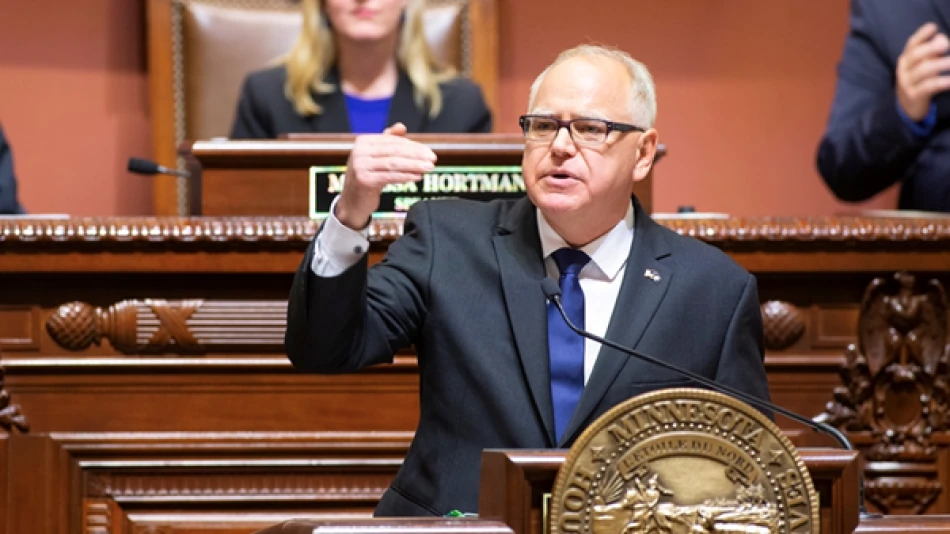
U.S. State Calls for Legislative Session on Firearm Laws
Minnesota Governor Pushes Gun Control After School Shooting, But Political Math Looks Impossible
Minnesota Governor Tim Walz is preparing to call a special legislative session to advance stricter gun laws following last week's shooting at a Catholic school in Minneapolis. However, the Democratic governor faces nearly insurmountable political obstacles in a state legislature split evenly between parties, making meaningful gun reform highly unlikely despite the tragic catalyst.
Walz's Ambitious Gun Control Package Meets Political Reality
Speaking to reporters Tuesday after visiting a public school in the Minneapolis suburb of Eagan, Walz outlined plans for what he called a "very comprehensive" package that could include an assault weapons ban. The governor said he would spend the coming days reaching out to lawmakers and developing a concrete legislative strategy.
But the political arithmetic tells a different story. Minnesota's House is expected to return to a 67-67 tie between Republicans and Democrats following a special election later this month, with a Republican speaker holding the gavel. Meanwhile, Democrats control the state Senate by just a single vote.
"To be very frank, in an evenly split [legislature], I'm going to need some Republicans to break from old dogma and say we need to do something about guns," Walz acknowledged, essentially admitting the uphill battle ahead.
A Familiar Pattern: Tragedy, Proposals, Political Gridlock
Walz's push follows a well-worn script in American politics where school shootings prompt calls for gun reform that ultimately founder on partisan divisions. The timing is particularly challenging given Minnesota's razor-thin legislative margins—among the most evenly divided in the nation.
The governor's situation mirrors struggles in other purple states where moderate Republicans might theoretically support gun measures but face intense pressure from conservative constituencies and gun rights groups. Unlike solidly blue states such as California or New York, which have passed sweeping gun restrictions, or red states that have moved in the opposite direction, Minnesota represents the political middle where compromise has become increasingly elusive.
Strategic Miscalculation or Necessary Symbolism?
From a purely tactical standpoint, calling a special session with such slim odds of success appears risky for Walz. Failed legislative efforts can make governors appear weak and waste political capital that might be better spent on achievable priorities.
However, the move may serve broader political purposes. Special sessions generate media attention and force lawmakers to take public positions on contentious issues. For Walz, who served as Tim Walz's running mate in the 2024 presidential election, demonstrating leadership on gun violence could bolster his national profile regardless of legislative outcomes.
The Republican Calculation
The success of any gun legislation will depend entirely on whether a handful of Republican lawmakers break ranks—a scenario that has become increasingly rare in an era of rigid party discipline. Minnesota Republicans will face intense scrutiny from gun rights advocates who view any compromise as capitulation.
Recent polling suggests that while Americans broadly support certain gun restrictions like universal background checks, assault weapons bans remain more divisive. Republican legislators will likely calculate that the political cost of supporting Walz's package outweighs any potential benefits, especially in conservative-leaning districts.
The governor's acknowledgment that he needs Republican support essentially telegraphs the weakness of his position while potentially giving opponents time to organize resistance. Whether this transparency reflects political naivety or calculated pressure remains to be seen, but it certainly sets expectations low for meaningful legislative action.
Most Viewed News

 Layla Al Mansoori
Layla Al Mansoori






